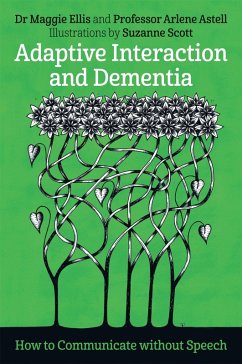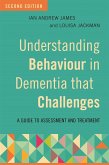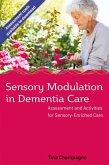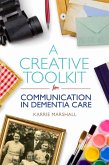This guide to Adaptive Interaction explains how to assess the communication repertoires of people with dementia who can no longer speak, and offers practical interventions for those who wish to interact with them.
Outlining the challenges faced by people living with advanced dementia, this book shows how to relieve the strain on relationships between them, their families, and professional caregivers through better, person-centred communication. It includes communication assessment tools and guidance on how to build on the communication repertoire of the individual with dementia using nonverbal means including imitation, facial expressions, sounds, movement, eye gaze and touch. With accessible evidence and case studies based on the authors' research, Adaptive Interaction can be used as the basis for developing interactions without words with people living with dementia.
Hinweis: Dieser Artikel kann nur an eine deutsche Lieferadresse ausgeliefert werden.
Outlining the challenges faced by people living with advanced dementia, this book shows how to relieve the strain on relationships between them, their families, and professional caregivers through better, person-centred communication. It includes communication assessment tools and guidance on how to build on the communication repertoire of the individual with dementia using nonverbal means including imitation, facial expressions, sounds, movement, eye gaze and touch. With accessible evidence and case studies based on the authors' research, Adaptive Interaction can be used as the basis for developing interactions without words with people living with dementia.
Dieser Download kann aus rechtlichen Gründen nur mit Rechnungsadresse in A, D ausgeliefert werden.
Hinweis: Dieser Artikel kann nur an eine deutsche Lieferadresse ausgeliefert werden.









